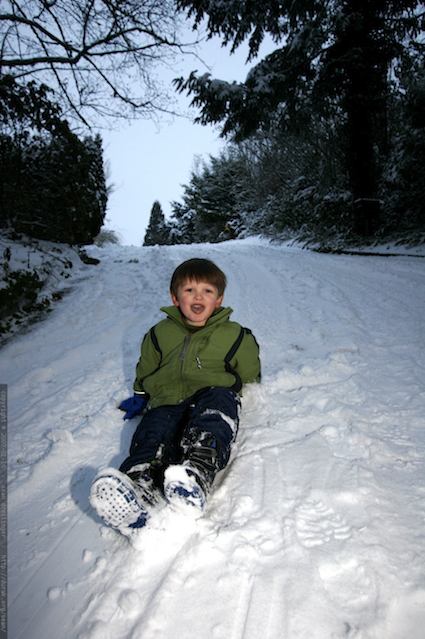Sir, Can We Have Free Time?
What Winter Bus Days Taught Me About Student Learning
I just poked my head outside the front door. It’s a little too early to tell but, judging by the size of the snow drifts on our street, I’m pretty sure that this will be one of those days when, at the very least, the “buses are cancelled but the schools are open”. One step below an official Snow Day, it will be one of those surreal days where the level of attendance is down but, in my experience, the level of excitement is up!
I just poked my head outside the front door. It’s a little too early to tell but, judging by the size of the snow drifts on our street, I’m pretty sure that this will be one of those days when, at the very least, the “buses are cancelled but the schools are open”. One step below an official Snow Day, it will be one of those surreal days where the level of attendance is down but, in my experience, the level of excitement is up! Bus students will be absent for sure, but also missing will be those students who live closer to the school but have been successful in convincing their parents that they would be better off at home.
When I had my own class, I used to love days like this, simply because they were different and allowed both teachers and students a little more breathing room and a lot more freedom. Sometimes classes would be combined to allow teachers and staff some unexpected planning time. In other cases, the school admin would gather students in the gym for a mid-morning game of floor hockey. And then there would be always the student who brought in a DVD from home, hoping to convince someone that it would be a great learning experience if they could watch it at school!
Possibly owing to the fact that my own students knew that I got excited about the novelty of Winter Bus Days, I always had a large number of students show up. In fact, there were a few years when some of my bus students were able to convince their parents to drive them to school. And, invariably, the question that most of them asked as they walked into the classroom was, “We’re going to have some free time today, right?”
Free time—time to decide for yourself what to do. Free time—time when you might be able to connect with peers with whom you don’t usually have the opportunity to connect. Free time—time to do something that you might normally have the opportunity to do.
As a student, I remember free time being granted when we had completed our assigned work or when the teacher had completed her teaching. As a young teacher, I remember declaring a free period when I felt I was not totally prepared to proceed with a particular lesson or when I just needed a break!
But as my career progressed, I tried to be attentive to what it was that students were actually seeking when they asked for free time. I learned that most weren’t looking for long periods of doing nothing . It wasn’t about being given permission to wander the halls aimlessly. And it certainly wasn’t about shutting down the learning process for any length of time.
Instead, what my students taught me was that they wanted some say in the how, what, where and when of their learning. They showed me that they could be trusted to make important decisions about how they approached their work and their time. Most told me that having little to no control over how the most vital hours of their day were spent was not very conducive to learning.
I think back to Sr. Valerie’s description of play that I posted in my last entry:
Play is the total of all the spontaneous, creative activities in which children freely choose to engage. The urge to teach must not conflict with the desire to learn.

